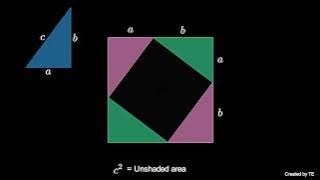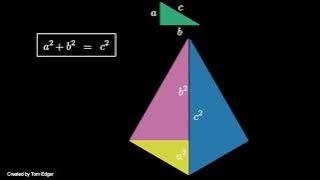
Combinatorial PCPs with Short Proofs - Or Meir
Or Meir Institute for Advanced Study December 11, 2012 The PCP theorem (Arora et. al., J. ACM 45(1,3)) asserts the existence of proofs that can be verified by reading a very small part of the proof. Since the discovery of the theorem, there has been a considerable work on improving the the
From playlist Mathematics

Hardness of Projection Games - Dana Moshkovitz
Dana Moshkovitz Institute for Advanced Study October 20, 2009 The PCP Theorem shows that any mathematical proof can be efficiently converted into a form that can be checked probabilistically by making only *two* queries to the proof, and performing a "projection test" on the answers. This
From playlist Mathematics

Constant Rate PCPs for Circuit-SAT with Sublinear Query Complexity - Eli Ben-Sasson
Eli Ben-Sasson Technion; Massachusetts Institute of Technology March 18, 2013 The PCP theorem (Arora et. al., J. ACM 45(1,3)) says that every NP-proof can be encoded to another proof, namely, a probabilistically checkable proof (PCP), which can be tested by a verifier that queries only a s
From playlist Mathematics

Pythagorean Theorem II (visual proof)
This is a short, animated visual proof of the Pythagorean theorem (the right triangle theorem) using a dissection of a square in two different ways. This theorem states the square of the hypotenuse of a right triangle is equal to the sum of squares of the two other side lengths. #mathshort
From playlist Pythagorean Theorem

Pythagorean Theorem I (visual proof)
This is a short, animated visual proof of the Pythagorean theorem (the right triangle theorem) using the hypotenuses of scaled triangles. This theorem states the square of the hypotenuse of a right triangle is equal to the sum of squares of the two other side lengths. #mathshorts #mathvide
From playlist Pythagorean Theorem

PCPs of Sub-Constant Error Via Derandomized Direct Product - Or Meir
PCPs of Sub-Constant Error Via Derandomized Direct Product - Or Meir The Weizmann Institute of Science October 19, 2009 A PCP is a proof system in which the proofs that can be verified by a verifier that reads only a very small part of the proof. One line of research concerning PCPs is tr
From playlist Mathematics

Calculus - The Fundamental Theorem, Part 1
The Fundamental Theorem of Calculus. First video in a short series on the topic. The theorem is stated and two simple examples are worked.
From playlist Calculus - The Fundamental Theorem of Calculus

IP = PSPACE via error correcting codes - Or Meir
Or Meir Institute for Advanced Study; Member, School of Mathematics April 15, 2014 The IP theorem, which asserts that IP = PSPACE (Lund et. al., and Shamir, in J. ACM 39(4)), is one of the major achievements of complexity theory. The known proofs of the theorem are based on the arithmetiza
From playlist Mathematics

Hermann Weyl Lectures Topic: The PCP theorem Speaker: Irit Dinur Affiliation: Weizmann Institute of Science; Visiting Professor, School of Mathematics Date: November 18, 2019 For more video please visit http://video.ias.edu
From playlist Hermann Weyl Lectures

The PCP theorem, locally testable codes, and property testing - Irit Dinur
Stability and Testability Topic: The PCP theorem, locally testable codes, and property testing Speaker: Irit Dinur Affiliation: Weizmann Institute of Science Date: January 13, 2021 For more video please visit http://video.ias.edu
From playlist Stability and Testability

Bettina EICK - Computational group theory, cohomology of groups and topological methods 1
The lecture series will give an introduction to the computer algebra system GAP, focussing on calculations involving cohomology. We will describe the mathematics underlying the algorithms, and how to use them within GAP. Alexander Hulpke's lectures will being with some general computation
From playlist École d'Été 2022 - Cohomology Geometry and Explicit Number Theory

Efficient Zero Knowledge Proofs - A Modular Approach (Lecture 2) by Yuval Ishai
DISCUSSION MEETING : FOUNDATIONAL ASPECTS OF BLOCKCHAIN TECHNOLOGY ORGANIZERS : Pandu Rangan Chandrasekaran DATE : 15 to 17 January 2020 VENUE : Madhava Lecture Hall, ICTS, Bangalore Blockchain technology is among one of the most influential disruptive technologies of the current decade.
From playlist Foundational Aspects of Blockchain Technology 2020

On the NP-hardness of 2-to-2 Games - Dor Minzer
Computer Science/Discrete Mathematics Seminar II Topic: On the NP-hardness of 2-to-2 Games Speaker: Dor Minzer Affiliation: Member, School of Mathematics Time/Room: 10:30am - 12:30pm/Simonyi Hall 101 Date: October 30, 2018 For more video please visit http://video.ias.edu
From playlist Mathematics

The Detectability Lemma and Quantum Gap Amplification - Itai Arad
Itai Arad Hebrew University of Jerusalem October 5, 2009 Constraint Satisfaction Problems appear everywhere. The study of their quantum analogues (in which the constraints no longer commute), has become a lively area of study, and various recent results provide interesting insights into q
From playlist Mathematics

Calculus 5.3 The Fundamental Theorem of Calculus
My notes are available at http://asherbroberts.com/ (so you can write along with me). Calculus: Early Transcendentals 8th Edition by James Stewart
From playlist Calculus

Explicit rigid matrices in P^NP via rectangular PCPs - Prahladh Harsha
Computer Science/Discrete Mathematics - Special Seminar Topic: Explicit rigid matrices in P^NP via rectangular PCPs Speaker: Prahladh Harsha Affiliation: Tata Institute of Fundamental Research Date: February 06, 2020 For more video please visit http://video.ias.edu
From playlist Mathematics

Constant-round interactive-proofs for delegating computations - Rothblum
Computer Science/Discrete Mathematics Seminar I Topic: Constant-round interactive-proofs for delegating computations Speaker: Ron Rothblum Date: Monday, February 1 Interactive proofs have had a dramatic impact on Complexity Theory and Cryptography. In particular, the celebrated IP=PSPACE
From playlist Mathematics

The Prime Number Theorem, an introduction ← Number Theory
An introduction to the meaning and history of the prime number theorem - a fundamental result from analytic number theory. Narrated by Cissy Jones Artwork by Kim Parkhurst, Katrina de Dios and Olga Reukova Written & Produced by Michael Harrison & Kimberly Hatch Harrison ♦♦♦♦♦♦♦♦♦♦ Ways t
From playlist Number Theory